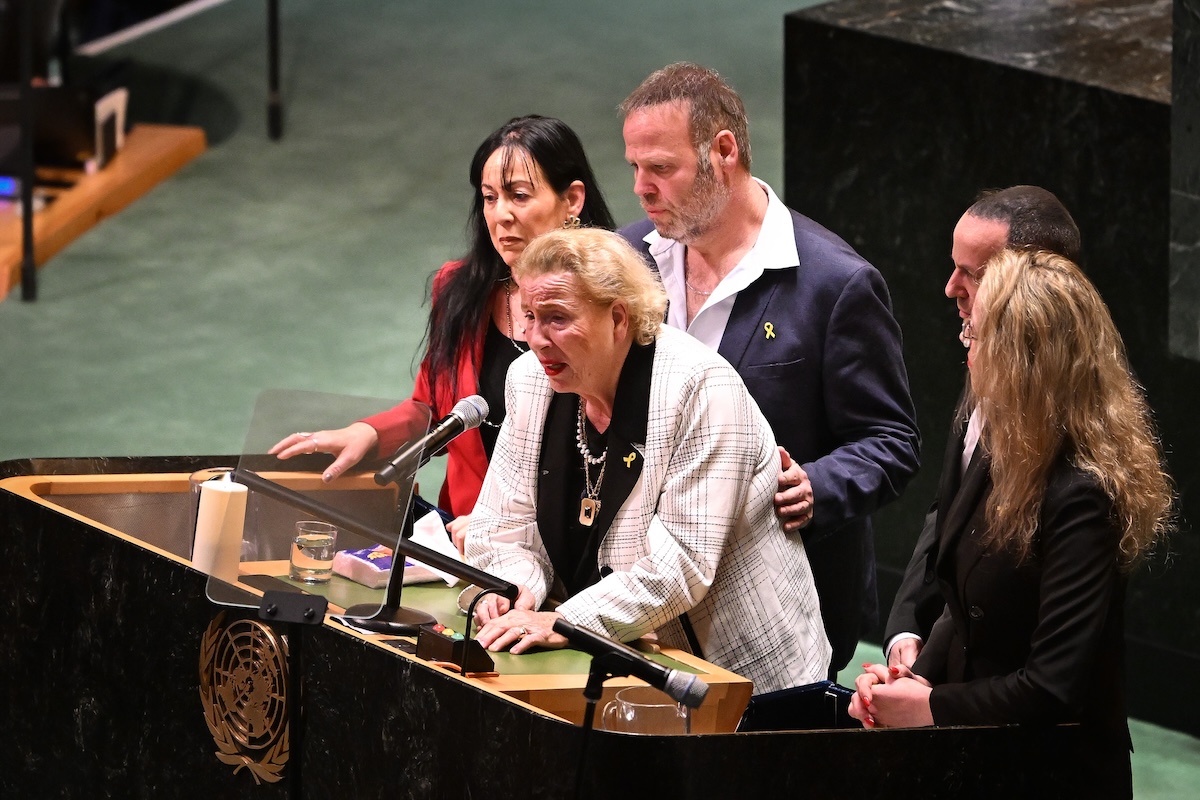Report: 70% of current Holocaust survivors will be gone in the next decade

Some 70% of living Holocaust survivors will be gone within the next decade, according to a new demographic report titled Vanishing Witnesses, which was published on Tuesday by the Conference on Jewish Material Claims Against Germany (Claims Conference).
Claims Conference President Gideon Taylor argued that the report stresses the need to urgently preserve Holocaust survivors’ testimonies for Holocaust memory and education purposes.
“This report provides clear urgency to our Holocaust education efforts,” Taylor stated. “Now is the time to hear first-hand testimonies from survivors, invite them to speak in our classrooms, places of worship and institutions. It is critical, not only for our youth but for people of all generations to hear and learn directly from Holocaust survivors. This report is a stark reminder that our time is almost up, our survivors are leaving us and this is the moment to hear their voices,” he continued.

The report predicts that only a tiny number of Holocaust survivors will be still alive by 2040 due to the advanced age of most Holocaust survivors.
The median age of the Holocaust survivors is 87 and some 1,400 survivors are more than 100 years old. Approximately 60% of the Holocaust survivors are women.
It was estimated in October 2024 that some 200,000 Holocaust survivors currently live in 90 countries. Around half of the Holocaust survivors, some 110,000 people live in Israel.
In comparison, roughly 170,000 Holocaust survivors lived in Israel at the beginning of 2022. The report projects that the number of Holocaust survivors in Israel will drop to only 62,900 in 2030. The number of Holocaust survivors are also expected to fall dramatically in the United States and former Soviet Union countries.
Greg Schneider, the Claims Conference’s executive vice president, warned that time is running out for first-hand Holocaust testimonies.
“We have known that this population of survivors would be the last, our final opportunity to hear their first-hand testimonies, to spend time with them, our last chance to meet a survivor. These are our final years to honor them, make sure they are living in dignity, care for them and provide for their needs. The work we do negotiating with the governments of Europe on behalf of survivors is critical to their existence – nothing could be more important, more urgent, as we see what little time we have left to ensure their wellbeing,” Schneider said.
In 2024, it was reported that 25% of Israel’s Holocaust survivors live in poverty and loneliness, frequently being forced to subsist on minimal pensions.
Tziona Koenig-Yair, the associate executive vice president in Israel, echoed the calls for preserving the first-hand Holocaust testimonies for future generations.
“Their stories are an irreplaceable piece of our collective history. We must ensure that the lessons we've learned from the horrors they experienced remain etched in human memory forever,” Koening-Yair said.
She concluded by stressing the need for assisting and improving the lives of the rapidly dwindling Holocaust survivors.
“This is the order of the day – care for them, ensure they live out their lives in dignity stolen from them in their youth, and preserve their testimony so that future generations never have to endure those atrocities again.”
The report also includes voices of Holocaust survivors including the 110-year-old Nechama Grossman who survived the Holocaust and lives in the Israeli city Arad.
Among the voices featured in the report is 110-year-old Nechama Grossman, one of the world’s oldest Holocaust survivors, who lives in Arad, Israel. Her son, Vladimir Shvetz emphasized the importance to preserve the memory of the Holocaust survivors.
“She lived through the worst of humanity and she survived. She raised her children, her grandchildren, her great-grandchildren, to teach them that unchecked hatred cannot win. We must remember her story, remember the Holocaust, remember all the survivors; learn from it so that her past does not become our future,” Shvetz argued.
The 98-year-old Holocaust survivor Leonard Zaicescu vowed to continue telling young generations about the horrors of the Holocaust.
“As long as I am still alive and have strength, I will do everything I still can so that future generations will learn about what happened."
Pinchas Gutter, one of the last survivors of the Warsaw Ghetto uprising, also stressed the need for the few remaining Holocaust survivors to speak up amid growing trends of Holocaust denial.
“It’s sobering to see exactly how few of us Holocaust survivors are left. We have an important piece of history that only we hold and only we can tell. I hope in the time we have, we can impart the learning from the Holocaust so that the world will never again have to endure that level of hate," Gutter said.

The All Israel News Staff is a team of journalists in Israel.
You might also like to read this:
















